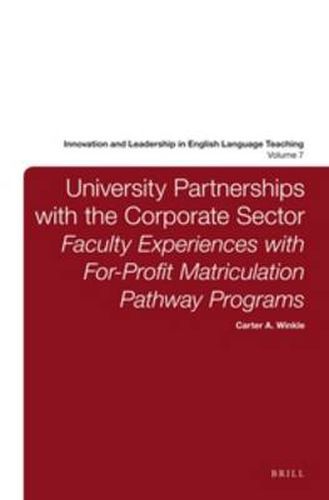Readings Newsletter
Become a Readings Member to make your shopping experience even easier.
Sign in or sign up for free!
You’re not far away from qualifying for FREE standard shipping within Australia
You’ve qualified for FREE standard shipping within Australia
The cart is loading…






Carter Winkle provides insight into the contemporary phenomena of partnerships between universities and for-profit educational service providers resulting in matriculation pathway programs for non-native English speaking students in the United States. Positive and negative implications of such partnerships are illuminated through interpretation of empirically derived narrative accounts of English language program administrators, English language teaching faculty, and academic discipline faculty working in contexts where such joint-venture matriculation pathway programs exist. The book retells stories of these academic professionals and examines how the new governance structures and practices of these programs impacted them and their work context, focusing on their institutional status, autonomy in curricular and pedagogical decision-making, and perceptions of how these new corporate initiatives affected students and their host institutions.
$9.00 standard shipping within Australia
FREE standard shipping within Australia for orders over $100.00
Express & International shipping calculated at checkout
Carter Winkle provides insight into the contemporary phenomena of partnerships between universities and for-profit educational service providers resulting in matriculation pathway programs for non-native English speaking students in the United States. Positive and negative implications of such partnerships are illuminated through interpretation of empirically derived narrative accounts of English language program administrators, English language teaching faculty, and academic discipline faculty working in contexts where such joint-venture matriculation pathway programs exist. The book retells stories of these academic professionals and examines how the new governance structures and practices of these programs impacted them and their work context, focusing on their institutional status, autonomy in curricular and pedagogical decision-making, and perceptions of how these new corporate initiatives affected students and their host institutions.